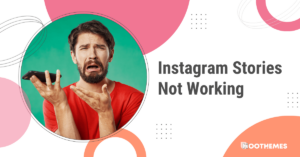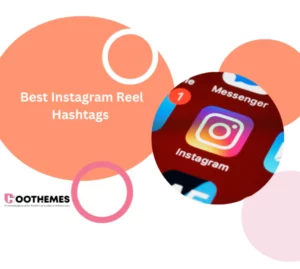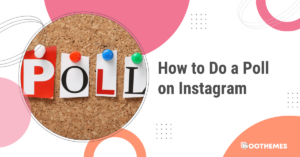Viral marketing is the ultimate strategy for businesses looking to make a big splash in the digital space. This innovative technique involves creating content that resonates with people and inspires them to share it with others, creating a viral effect that spreads like wildfire across the internet. If done correctly, viral marketing can result in an explosion of brand awareness, a surge in website traffic, and a significant increase in sales.
To achieve success with viral marketing, it’s essential to understand the key elements that make a campaign go viral. Additionally, viral marketing requires a thorough understanding of social media platforms and the ability to leverage their features to maximize reach and engagement. One way to do this, for instance, is by using the best influencer marketing platforms out there.
As the internet continues to play an increasingly vital role in our daily lives, viral marketing has become a critical tool for businesses looking to stay ahead of the competition. In this ultimate guide, we’ll delve into everything you need to know to create successful viral marketing campaigns and take your business to the next level.
What Is Viral Marketing
Viral marketing is a powerful marketing strategy that leverages social media and other digital channels to promote a product or service. At its core, viral marketing is about the art of creating content that people want to share with others, resulting in a ripple effect that spreads the message far and wide. But what is a viral marketing campaign, exactly?
In simple terms, viral marketing is a way to get people talking about your brand. It’s about creating content that is so compelling, interesting, or funny that people can’t resist sharing it with their friends and followers on social media. When done right, viral marketing can result in an exponential increase in brand awareness and visibility, all thanks to the power of social sharing.
The viral marketing definition has evolved over the years as social media has become an increasingly important part of our lives. Today, viral marketing campaigns can take many forms, from videos and memes to interactive quizzes and social media challenges. The key to success is to create content that resonates with your target audience and encourages them to engage with your brand. By tapping into the power of social media and harnessing the power of viral marketing, businesses can reach new audiences and drive meaningful results.
3 Top Examples of Viral Marketing
There are countless examples of viral marketing campaigns that have captured the attention of audiences and generated buzz on social media. From creative videos to interactive campaigns, these examples of viral marketing showcase the power of this customer-centric marketing strategy.
#1. Example: Ice Bucket Challenge
One viral marketing example is the ‘Ice Bucket Challenge,’ which took social media by storm in the summer of 2014. The campaign involved people dumping a bucket of ice water on their heads and challenging others to do the same, all in the name of raising awareness for ALS. The campaign quickly went viral, with millions of people participating and raising over $220 million for the cause.
#2. Example: Dilly Dilly
Another viral marketing example is the ‘Dilly Dilly’ campaign by Bud Light. The campaign featured a series of humorous commercials set in a medieval fantasy world, with characters shouting ‘Dilly Dilly’ to toast to each other. The catchphrase caught on quickly and became a cultural phenomenon, with people using it to toast everything from sports victories to everyday life moments.
#3. Example: Egg Gang
A more recent example of viral marketing is the ‘Egg Gang’ campaign by a mysterious Instagram account that posted a photo of an egg and challenged users to help it become the most-liked photo on the platform. The campaign quickly went viral, with people around the world liking and sharing the photo. The egg ultimately became the most-liked photo on Instagram, with over 55 million likes.
These viral marketing examples demonstrate the power of creating content with a high potential of going viral. By leveraging the power of social media and creating campaigns that inspire people to share, businesses can drive significant results and reach new audiences.
What Are Viral Marketing Strategies
By now, you have gained a thorough insight into the importance of this type of marketing. But what are some viral marketing strategies that businesses can use to create campaigns that capture the attention of their target audience?
One popular strategy for viral marketing is to create viral marketing videos that are entertaining, informative, or emotionally engaging. These videos can take many forms, from funny clips and how-to tutorials to emotional stories and product demonstrations.
Another viral marketing strategy is to create interactive campaigns that encourage user participation. This can include social media challenges, quizzes, and games that are designed to be shared with friends and family. These campaigns are not only fun and engaging, but they also help build a sense of community around your brand.
Many businesses turn to viral marketing agencies for help creating and executing successful campaigns. These agencies specialize in creating viral content that the audience can relate to and leveraging social media to drive engagement and reach. They have the expertise and resources needed to create campaigns that stand out in a crowded digital landscape and drive meaningful results for their clients.
Pro Tip: Most businesses use Instagram as their number one option for incorporating their viral marketing strategies. Therefore, keeping track of popular Instagram trends can help your marketing efforts significantly.
How to Launch a Successful Viral Marketing Campaign
Here are some steps to launch a viral marketing campaign:
- Identify your target audience: The first step in launching a viral marketing campaign is to identify your target audience. You need to understand their preferences, behavior, and what type of content they are likely to share.
- Create shareable content: The success of a viral marketing campaign depends on creating content that is shareable. This could be in the form of a video, image, or text that is visually appealing and emotionally engaging.
- Choose the right platform: You need to choose the right platform to launch your viral marketing campaign. Social media platforms like Facebook, Twitter, Instagram, and TikTok are great for viral marketing campaigns.
- Identify influencers: Influencers can help spread your message to a wider audience. You need to identify the right influencers who have a large following and align with your brand’s values.
To do so, you can take advantage of Ainfluencer; the popular free influencer platform where brands can connect with their desired influencers in a safe environment
- Create a call to action: You need to create a call to action that encourages people to share your content. This could be in the form of a hashtag, a contest, or a challenge.
- Monitor and measure success: You need to monitor and measure the success of your viral marketing campaign. You can track metrics such as reach, engagement, shares, and conversion rates to see how well your campaign is performing.
- Encourage user-generated content: Encouraging user-generated content can help your viral marketing campaign gain momentum. This could be in the form of user-generated videos or images that showcase your product or service.
- Maintain brand consistency: It’s important to maintain brand consistency across all channels. Your messaging, tone and branding should be consistent throughout your viral marketing campaign.
Launching a viral marketing campaign requires creativity, planning, and careful execution. By following these steps, you can increase the chances of your campaign going viral and reaching a wider audience.
What Are the Advantages of Viral Marketing
As with everything, this type of marketing comes with its own advantages and disadvantages. Some merits of viral marketing include:
- Low cost: Viral marketing can be relatively inexpensive compared to traditional advertising methods, as it relies on organic growth on Instagram (or other social media apps) and user-generated content.
- Wider reach: With the help of social media, viral marketing campaigns can reach a large audience quickly and easily.
- High engagement: Viral marketing often generates high levels of engagement, as users are more likely to engage with content that is shared by their friends or family.
- Increased brand awareness: Viral marketing can help increase brand awareness as it generates buzz and word-of-mouth recommendations about the product or service.
- Better targeting: Viral marketing can be highly targeted, as marketers can design campaigns to reach specific demographic groups or social networks.
- Longevity: Viral marketing campaigns can continue to generate traffic and leads long after they are launched, as the content continues to be shared and recommended by users.
Overall, viral marketing can be a highly effective marketing strategy, particularly for brands that want to create buzz and generate word-of-mouth recommendations about their products or services.
What Are the Demerits of Viral Marketing
While viral marketing can be a powerful tool for building brand awareness and engaging with audiences, there are also some potential disadvantages to consider:
- Lack of control: Viral marketing campaigns rely on users to share content, which can make it difficult for marketers to control the message or ensure that it is shared in the right context.
- Uncertain outcomes: Viral marketing campaigns are unpredictable and difficult to measure, as it is impossible to know how many people will share the content or how effective it will be in driving conversions.
- Risk of negative publicity: These campaigns can quickly generate negative publicity if users react negatively to the content or message.
- Limited targeting: Viral marketing campaigns are often broad-based and may not be as effective in reaching specific target audiences.
- Short-lived impact: Campaigns carried out by this type of marketing often generate a burst of activity, but this may not translate into long-term brand loyalty or sales.
- Dependence on social media platforms: Viral marketing campaigns often rely on social media platforms to spread the message, which can be risky if the platform changes its algorithm or policies. For instance, Instagram algorithm is constantly changing. So, you need to keep your eyes on it.
So we can conclude that while viral marketing can be a powerful tool for generating buzz and engagement, it is important for marketers to carefully weigh the potential risks and benefits and ensure that it aligns with their overall marketing strategy.
Viral Marketing FAQs
So far, we’ve covered everything you need to know to carry out an effective viral marketing campaign. Now, it is about time we tackled some of your most frequently asked questions regarding it. Ready?
Q1. How Does Viral Marketing Work?
Viral marketing works by creating engaging and shareable content that encourages users to share the content with their friends and family, ultimately leading to wider reach and increased brand awareness.
Q2. How Do You Measure the Success of a Viral Marketing Campaign?
The success of a viral marketing campaign can be measured through various metrics such as reach, engagement, conversion rates, and social media shares. It’s important to define goals and KPIs before launching a viral marketing campaign to measure its success.
Q3. Is Viral Marketing Suitable for Every Business?
Viral marketing may not be suitable for every business, as it depends on the brand, target audience, and overall marketing strategy. It’s important to evaluate the risks and benefits before deciding to launch a viral marketing campaign.
Final Words on Viral Marketing
In conclusion, viral marketing is a powerful strategy for reaching a wider audience and increasing brand awareness. With the right approach and execution, it can be an effective and cost-efficient way to drive engagement, build a loyal community, and grow your business.
In this article, we tried to slice and dice everything you need to know about this incredible marketing type. We also demonstrated how influencers can help you maximize your marketing efforts.
So, don’t waste a second more and sign up on Ainfluencer for FREE to skyrocket your viral marketing!



![Read more about the article A Complete Instagram Marketing Guide in 2022 [Tactics, Practices, & Tips]](https://www.hoothemes.com/wp-content/uploads/2022/05/Instagram-Marketing-A-Detailed-Guide-For-2022-300x157.png)





